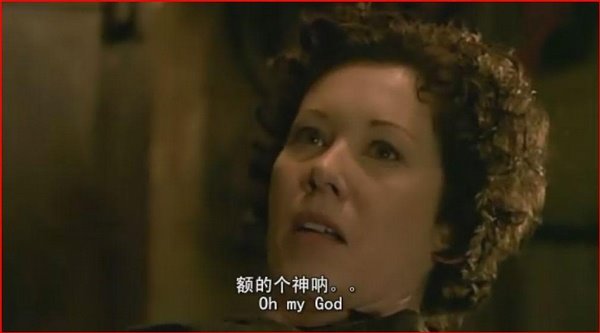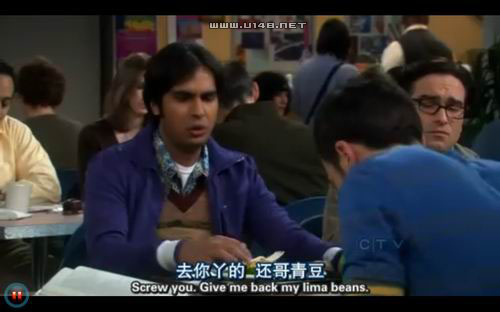Lights, camera, captions!
For many Chinese viewers, there's an invaluable aid that allows them to enjoy their favorite English-language films or TV shows without being lost in translation. They are an indelible part of the viewing experience on TV and computer screens, often triggering more laughs than the original scripted content. They are, of course, Chinese-language subtitles. The subtitles are written by a group of TV fans and freelance amateur translators, who use creativity to bring to life popular comedies, dramas, romances, horrors and documentaries processed into Putonghua with a twist.

Translation sensation
The team of subtitle scribes, recognized online as "fan subtitling" or "fansub" members, work in different sectors and countries for a common purpose: to help Chinese audiences have a more enjoyable experience watching foreign films or TV programs. Whether they want to share their love for a certain TV series with others or are simply enthusiastic about translating, fansub members cooperate on websites that bring foreign films or TV programs to Chinese viewers.
There are hundreds of fansub groups in China that provide subtitles for Japanese cartoons, Hollywood blockbusters and various foreign TV programs, including reality shows, news and current affairs programs and even courses in English provided freely by famous universities. Members gather online and translate, without pay. They place an emphasis on timeliness and quality in translation in their work, earning them respect from TV fans across the country.
Aside from the opening of a TV show or film when fansub members occasionally add their nickname or English moniker on screen, the translators are anonymous to most viewers.
When China's broadcasting watchdog, the State Administration of Radio Film and Television, asserted to shut down peer-to-peer (P2P) websites such as BTChina to protect the copyright of foreign films in December 2009, many fansub websites were forced to close with them.
It was a blow some struggled to recover from, but others such as non-profit subtitle website YYeTs bounced back, albeit with a pledge not to speak with the media. The code of silence remains strong, with several fansub members refusing interview requests from the Global Times, possibly in a bid to avoid the media spotlight.

Chinese humor in subtitles
A simple English phrase can be translated more than a dozen ways by creative fansub members. Their translations, often adapted to Chinese dialects, jokes and popular buzzwords, infuse Chinese characteristics into foreign TV programs and movies.
Names of Chinese celebrities, especially those who find fame online, are widely adopted in translations. Feng Jie (Sister Feng), who gained attention for her unrealistic criteria for a marriageable boyfriend, and Li Yuchun, a female singer nicknamed Chun Ge (Brother Chun) by Web users for her masculine voice, are two such names readily adapted to characters in films or TV shows who might share similar traits.
Many inspirations for these translations with Chinese characteristics come from the country's history, literature and movies. For instance, "I swear to God" is sometimes translated as "I guarantee it to Chairman Mao," while something that appears on "national news" is translated as being reported by "China Central Television (CCTV.)" Excerpts from ancient Chinese poems or proses are widely adopted in subtitles, especially in TV series that involve royalty. From stories of Chinese film personalities to the latest news events in China, fansub members invariably find a distinctly Chinese approach to amuse local audiences.
Fansub members' translation style, which greatly differs from the formal translation viewers can expect to see screened in foreign films at cinemas, has added a more personable dimension of entertainment for Chinese viewers hoping to improve their English.
"I think their translations are brilliant," gushed Li Xiner, a student at the Communication University of China (CUC). "But I like translations that are faithful to the original context, retaining characteristics of the English language."
"Their translations suit Chinese audiences based on their cultural understanding, and it's funny," said Huang Biyun, another student at CUC. "But it's not ideal for people who watch TV with subtitles purely to improve their English or learn about Western culture."
Both Huang and Li listed hit American sitcom, The Big Bang Theory, as one of their favorite shows. Like many sitcoms translated by fansub, its Chinese subtitles incorporate funny words and Chinese jokes to appeal to audiences.
Criticism from purists
Although many Chinese TV lovers welcome their creative translations, professional translators and experts don't see their work as making a positive contribution to promote proper Chinese-English translation, nor offering a good model for English-language learning.
Most of the fansub members are from the post-80s or -90s generation, and are keen observers of the modern world. They come from all walks of life with different academic backgrounds, both factors that make their translations a hit even if they lack orthodox techniques, said CUC professor Ma Zhengqi.
"Most fansub members are not professional translators. They lack basic background in translating and knowledge of Western history and culture. Their translations lack the artistic feeling of a true literary translation," said Ma, who teaches international journalism and film dubbing. He added that fierce competition among different fansub websites forces amateur translators to often rush their work, often resulting in many mistakes.
Fansub members' translations might be appealing when it comes to winning over younger Chinese TV audiences, but the language they use isn't supervised or regulated, Ma noted. There should be a law regulating fansub' subtitles, he said, stressing the need for qualified translators to write subtitles so that the translations can be more faithful and reflect the genuine punch line of jokes in comedies, rather than reinterpreted versions that might tickle the funny bone of young Chinese viewers.
Nevertheless, the debate pitting professionals against amateurs has not discouraged fansub members from their work. Chinese audiences also appear less upset than Ma over what he perceives as their "unprofessional translation" to meet the demand of a greater public.
"Audiences are not professional translation scholars and it's perfectly fine [for fansub members] to use language that makes them comfortable," said Luo Qian, who majors in translation at Beijing Foreign Studies University.
She added that if films and TV series are introduced through official channels then they would undoubtedly require formal translation, unfortunately without catchy buzzwords and references to China's legion of Internet celebrities.